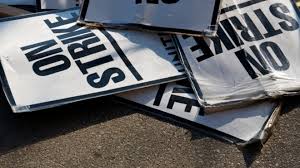It’s easy to scoff at the anti-free-trade rhetoric emanating from the U.S. presidential campaign trail. Donald Trump keeps yelling about China, Mexico, and Japan. Bernie Sanders won’t stop shouting about greedy multinational corporations. Hillary Clinton, Ted Cruz, and John Kasich are awkwardly leaning in the same direction. If you’re a typical pro-trade business executive, you’re tempted to ask: Were these people throwing Frisbees on the quad during Econ 101? A recent article in the National Reviewexpressed disdain by blaming a swath of America for its own problems, attributing Trump’s success to a “white American underclass” that’s “in thrall to a vicious, selfish culture whose main products are misery and used heroin needles.”
Wait. Trump and Sanders may be clumsy and overly dramatic, and their solutions may be misbegotten, but they’re on to something real. New research confirms what a lot of ordinary people have been saying all along, which is that free trade, while good overall, harms workers who are exposed to low-wage competition from abroad. Ignoring this damage—or pretending that it’s being cured through “redistribution” of gains—undermines the credibility of free traders and makes it harder to win trade liberalization deals.

